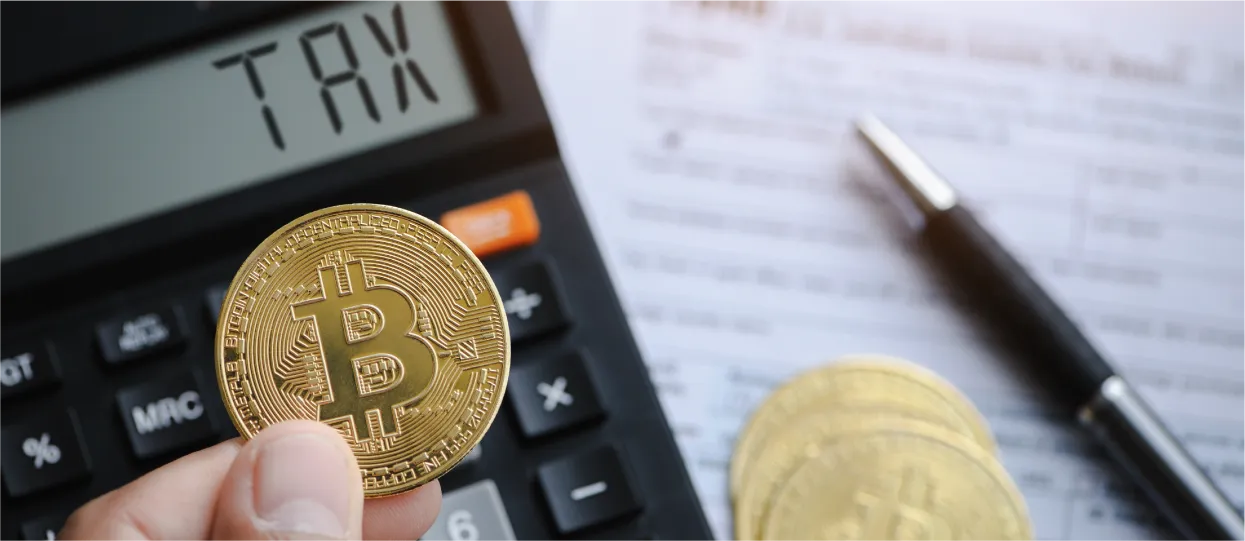October 22, 2024
Let's say you just sold some Bitcoin for a $100,000 profit. Now you're looking at a hefty tax bill. Tax-advantaged energy can help.

Keywords: reduce cryptocurrency taxes, Bitcoin tax strategy, oil and gas deductions, IDC tax benefits, crypto tax planning, working interest deductions, Bitcoin gains offset, tax reduction strategy
Let's say you just sold some Bitcoin for a $100,000 profit. Now you're looking at a hefty tax bill. But here's where it gets interesting: investing in oil and gas working interests could potentially reduce your taxable income significantly. Here's how real investors are doing it (legally!).

Sarah sold Bitcoin in 2023 for a $100,000 profit. She was facing paying around $37,000 in taxes (assuming 37% tax rate). Instead, she invested $75,000 into a direct working interest in an oil well. Here's what happened:
"Direct Working Interest"
Think of it like owning a small business rather than buying stock. You're not just an investor - you're technically in the oil business. This is crucial because:
✅ DO:
❌ DON'T:
Think of this like buying a small business. You need:
Real Example:
Bad Investment: "Oil Fund XYZ that pools investor money to buy existing wells"
Good Investment: "25% direct working interest in the Smith County drilling project"
Important: You must use dollars, not crypto! Here's the flow:
Let's break down a $100,000 investment:
Investment Breakdown:
- IDCs (Intangible Drilling Costs): $80,000
- Equipment: $20,000
Year 1 Tax Benefits:
- IDC Deduction: $80,000 (immediate write-off)
- Equipment Depreciation: ~$2,857 (7-year schedule)
Total Year 1 Deductions: $82,857
Documentation is King
1. Keep These Papers:
- Working interest ownership documents
- Proof of payment
- Operator agreements
- Monthly production reports
Use Separate Bank Accounts
2. Recommended Setup:
- Crypto trading account
- Regular checking account
- Oil & gas business account
Track Everything
3. Simple spreadsheet example:
Date | Crypto Sale | Gain/Loss | Oil Investment | Deductions
5/1 | 2 BTC | +$100,000 | - | -
5/15 | - | - | $75,000 | $60,000 IDC
Q: "Can I invest my Bitcoin directly into oil & gas?"
A: No - must convert to USD first. Think of it like this: oil wells don't run on Bitcoin (yet!)
Q: "How much should I invest?"
A: General rule of thumb: Consider investing 75-85% of your crypto tax bill if you want maximum offset. Example: $37,000 tax bill → Consider $45,000-50,000 investment
Q: "What if the well is dry?"
A: You still get the tax deductions! The IRS doesn't care if you find oil - they care that you legitimately tried.
Think of this like your crypto tax-saving dream team:
This strategy isn't for everyone. It works best if:
Remember: This isn't about avoiding taxes - it's about using legitimate business deductions to offset gains while building another income stream.
Disclaimer: This guide provides general information only. Consult qualified tax and legal professionals for advice specific to your situation. Tax laws can change, and proper structuring is crucial for compliance.

Track these topics for updates:
Remember: The key to success is doing this right, not just doing it fast!